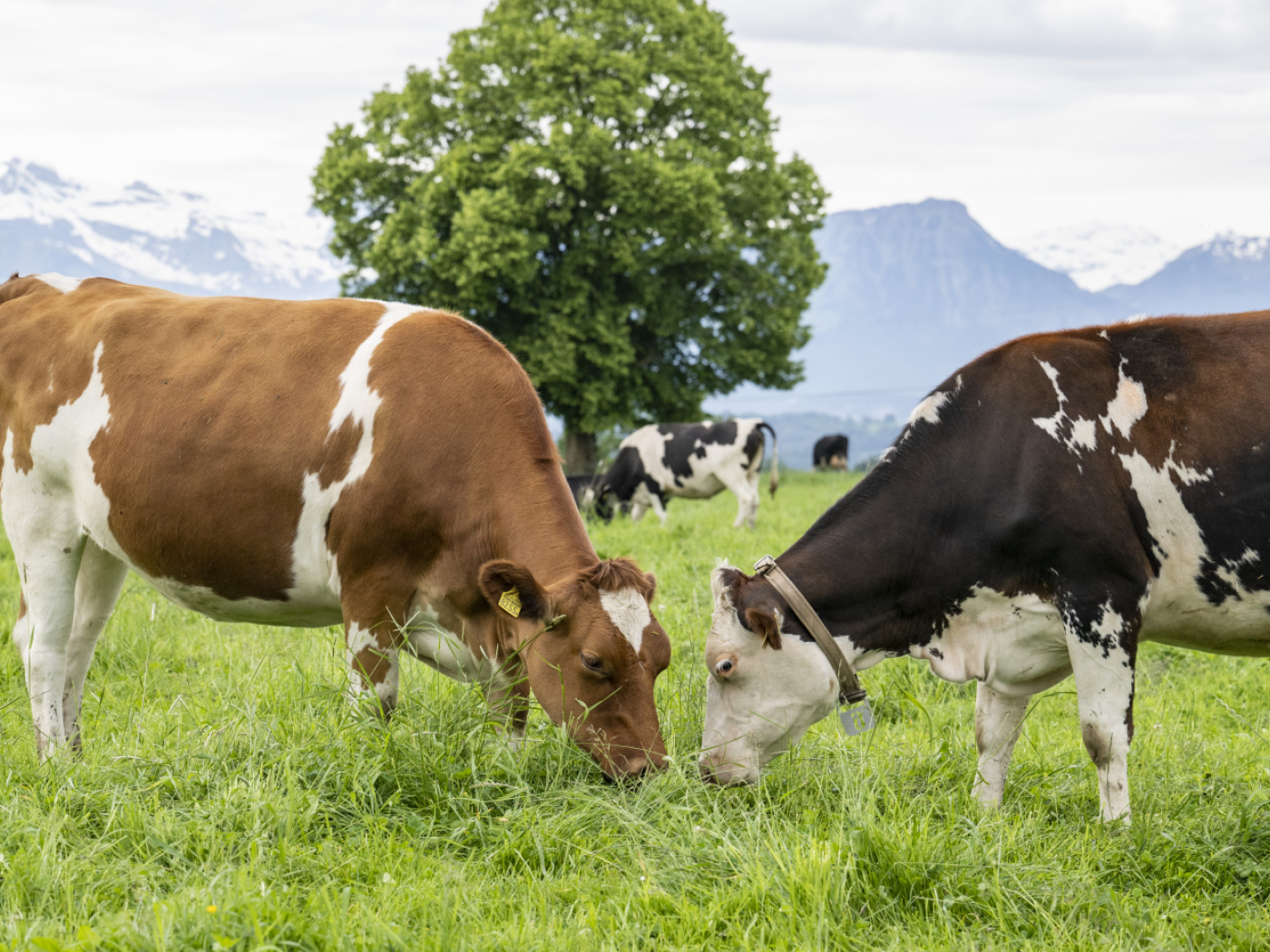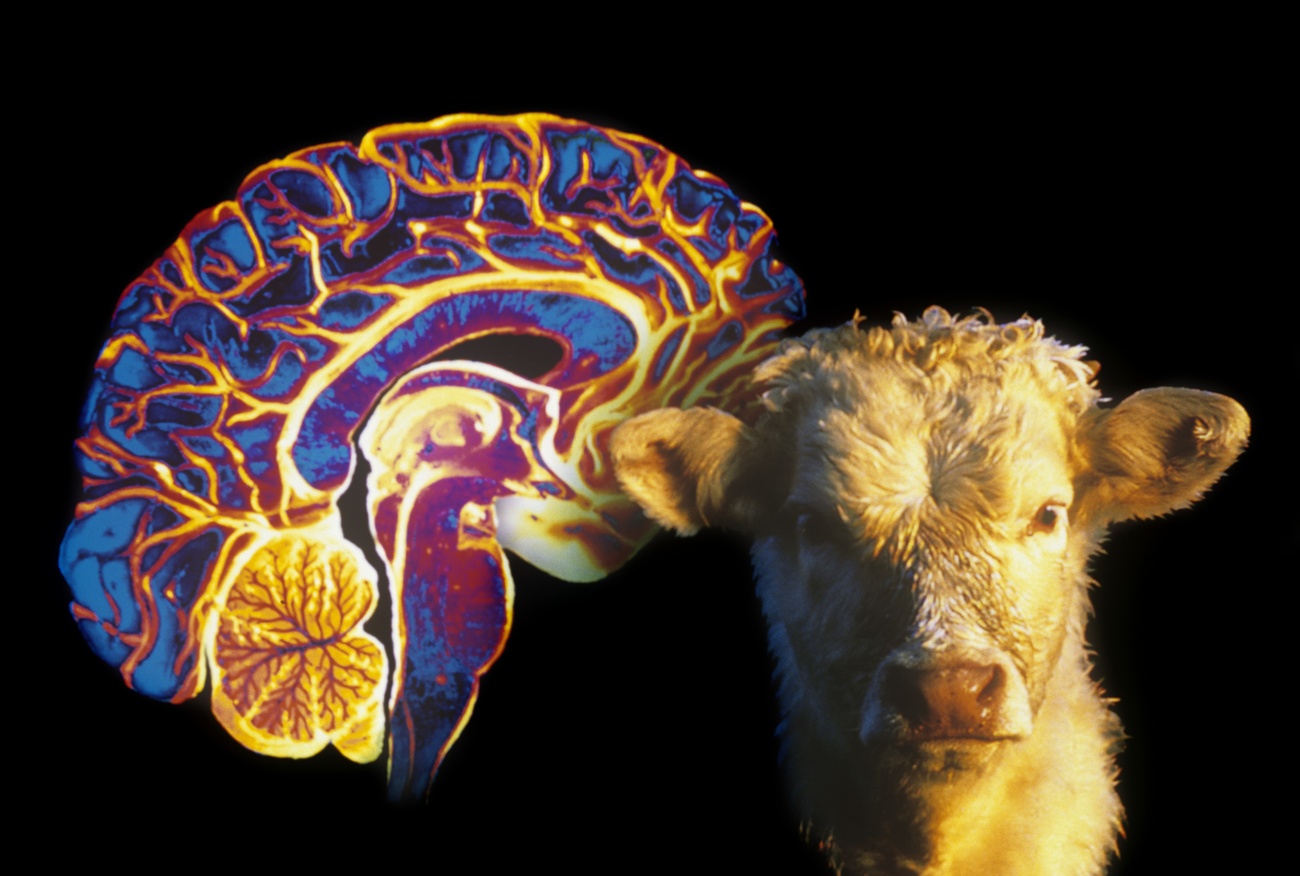
First outbreak of lumpy skin disease in cattle near Geneva

A first outbreak of cattle skin nodule disease (Lumpy Skin Disease) has been discovered in France, just over the border from Switzerland. The cattle on the infected farm have to be slaughtered. There have been no cases of this disease in Switzerland to date.
+ Get the most important news from Switzerland in your inbox
The Federal Food Safety and Veterinary Office (FSVO) is monitoring the situation in “close cooperation” with the French authorities, a spokeswoman told the Keystone-SDA news agency on Sunday. However, the French authorities have not yet communicated the exact coordinates of the outbreak.

More
Is mad cow disease making a comeback?
So far, no cases of this cattle disease have been detected in Switzerland. According to the FSVO, the surveillance zone will not be extended for the time being. Nevertheless, the Federal Food Safety and Veterinary Office has announced the compulsory vaccination of cattle in the canton of Geneva, in the neighbouring region of Terre Sainte in Vaud and in the regions of Champéry, Finhaut and Ferret in Valais.
Various additional measures apply in the surveillance zone. In canton Valais, for example, restrictions have been imposed on returning from summering in the affected regions.
Slaughter of hundreds of cattle in France
The contagious viral disease led to the slaughter of hundreds of cattle in Savoie and Haute-Savoie this summer. The new outbreak of lumpy skin disease (LSD) is located near Geneva. This is the first case of LSD in the department of Ain since the first outbreak was discovered in the Savoie region on June 29, 2025, as the prefecture wrote in a statement on Sunday.
All cattle belonging to the infected herd will have to be slaughtered in the next few days. Immediate measures have been taken to prevent the spread of the disease to other animals, in particular the strengthening of surveillance and a ban on the movement of cattle on the alpine pastures.
In mid-August, 74 outbreaks were detected in 39 cattle farms in France. In order to stop the spread of the disease, France launched a large-scale vaccination campaign on July 18 for the 310,000 cattle in the two departments of Savoy and the neighbouring departments of Ain and Isère.
The cattle disease LSD is transmitted by insects. According to the FSVO, the disease is not dangerous for humans, not even when consuming meat or milk. However, the disease poses a serious threat to the health of cattle, causing fever, skin lesions and serious economic consequences. The vigilance and co-operation of all livestock farmers are essential.
Translated from German by DeepL/jdp
We select the most relevant news for an international audience and use automatic translation tools to translate them into English. A journalist then reviews the translation for clarity and accuracy before publication.
Providing you with automatically translated news gives us the time to write more in-depth articles. The news stories we select have been written and carefully fact-checked by an external editorial team from news agencies such as Bloomberg or Keystone.
If you have any questions about how we work, write to us at english@swissinfo.ch

In compliance with the JTI standards
More: SWI swissinfo.ch certified by the Journalism Trust Initiative

























You can find an overview of ongoing debates with our journalists here . Please join us!
If you want to start a conversation about a topic raised in this article or want to report factual errors, email us at english@swissinfo.ch.